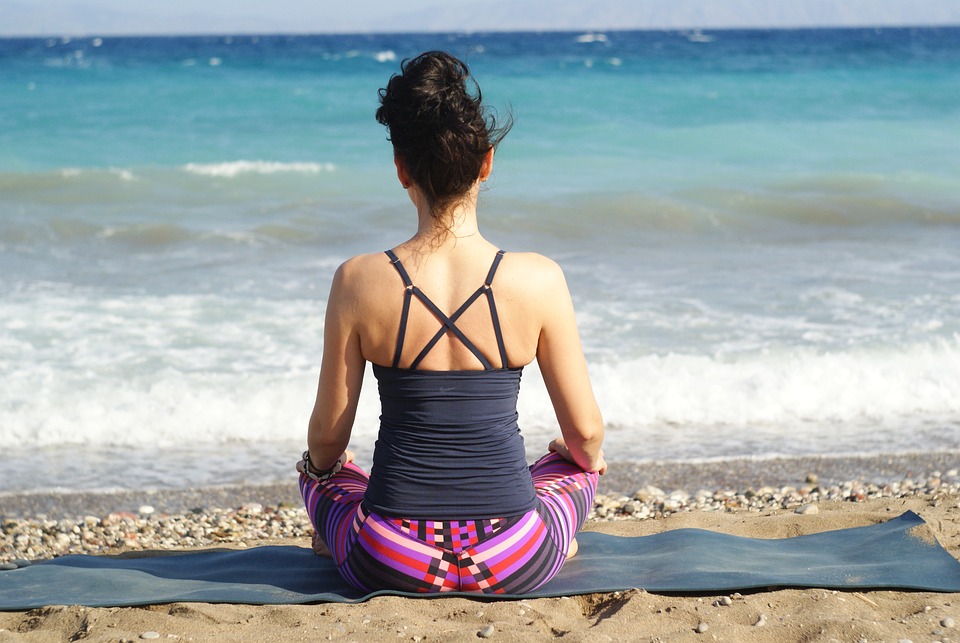
Stress is the silent killer that is always present and can be very dangerous. The average person deals with a level of stress that is not healthy for the human body. Stress, and your body’s reaction to it, is primal. The device was designed to protect you from harm during dangerous situations, like when you’re hunting for food or fending off wild animals that are trying to break into your home.
Luckily those days are long gone.
Although people face fewer dangerous situations on a daily basis, stress is still a very big concern. Most doctor’s visits are due to stress-related symptoms. Nowadays, our main sources of stress come from things that are not physical, such as being emotional, worrying about money, and work-related stress. When stress occurs, the body reacts in ways that can be harmful to health, such as increased blood pressure, cholesterol, and strain on organs. Digestive problems may also occur.
What are some ways you can reduce stress in your life to stay healthy and happy? Try some natural stress remedies rather than prescription medication. Here are some natural ways to relieve stress.
1. Get Some Exercise
Working out can help ease pain by releasing endorphins, which act as natural painkillers. It can also improve your sleep. Not only does exercising keep your body and organs in good shape, it also has many other benefits.
You don’t have to go to the gym every day to get exercise. Rather, there are fun options for exercise you might want to try:
- Running has been picking up in popularity over the last few years and is a very easy-to-join community activity. You don’t have to be an iron man either. Just grab a pair of shoes, and go for a jog. The important thing is to maintain your heart rate for at least 30 minutes.
- Yoga is not something most people would associate with exercise unless, of course, they are avid yoga practitioners. Sometimes slowing down, focusing on your breathing, and really stretching your body is an incredibly effective ways to get exercise.
- Walking is a low-impact option for getting exercise and is generally acceptable for most people. Even if you cannot run, a brisk walk can be enough to increase your heart rate and release your endorphins.
- There are also no-impact pedal exercisers, which can be used for either your arms or your feet. These are great options for people who have challenges with their knees or hips and need another option to get their heart rate up and reduce their stress.
2. Improve Your Diet
Most people are much closer to being malnourished than they may realize. Despite the abundance of calories in the contemporary diet, many people are not getting the correct mix of nutrients to help their bodies function properly. According to surveys from the U.S. According to Centers for Disease Control and Prevention, only 33% of adults eat the recommended amount of fruit. And only 27% are getting in enough vegetables.
If your body is not functioning well, it can negatively impact your mental state and your capacity to cope with stress.
This knowledge tells us why it is essential to take a good multivitamin. When looking for a multivitamin, you want to find one that contains whole plant-based vitamins and minerals, rather than ones that are synthetic. Make sure your vitamins come from organic sources to avoid polluting your body with toxins it can’t process.
B-complex vitamins are known to help boost energy levels. If you’re feeling tired and struggling to focus, it can make work-related stress worse. Second, B-complex helps improve mood. B vitamins are necessary for the formation of serotonin, which is responsible for creating a happy feeling. Research has demonstrated that individuals who are happier tend to experience less stress.
3. Change Your Lifestyle
Your stress level may be influenced greatly by your lifestyle. People who suffer from high-stress levels often have little time for sleep and recreation due to their busy schedules. If you do not have a support system to help you deal with stress, it can be very difficult to manage. Here are some tips for how to tweak your lifestyle that will also help reduce your stress:
- Eat Breakfast. Too many people skip the most important meal of the day. Breakfast helps to kick-start your metabolism and get all of your systems working properly. Skipping it starts your day without the energy you need and puts your mind and body at a disadvantage in dealing with the stress of the day.
- Get the right amount of sleep. The average adult should get between 7.5-9 hours of sleep each day. Fortunately, that does not mean that you need to get that amount of sleep all in one setting but can split it with a nap if needed. The major thing to consider here is the sleep cycles and ensuring you are not only getting the right amount of sleep but also the right amount of REM sleep specifically.
- Get outside into nature. Nature has a tendency to help uplift your mental state. Part of the reason for this is the extra oxygen in the air when you are out in nature. The extra oxygen helps your system to function better and helps stimulate your parasympathetic nervous system, promoting a sense of calm throughout your body.
4. Adaptogenic Herbs & Essential Oils
The practice of using herbs to relieve stress dates back to before modern medicine existed. Some plants can have a positive effect on people’s mood and can also improve their overall health. The regular use of these herbs and plants, especially in the form of essential oils, helps to keep your body calm. There are a variety of plants that people enjoy for their calming effects, including chamomile, lavender, hops, valerian, lemon balm, and passionflower. There are many benefits to using essential oils around your home, including reducing stress and creating a pleasant smell.
These, plus adaptogenic herbs like ashwagandha, maca, and ginseng, can help reduce stress by reducing the effects cortisol (the primary stress hormone) has on your body.
5. Repeat a Positive Affirmation
Positive affirmations are statements that express what you want to achieve or manifest in your life.
Researchers conducted a study at Arizona State University and found that affirmations related to acknowledging that one is not crazy and that anxiety will pass in time were the most effective.
With that in mind, here are some examples of positive affirmations you can repeat when feeling anxious:
Positive Affirmations for Anxiety
“I am not going crazy, I’m just feeling anxiety”
“This too shall pass”
“I’m not alone; other people feel this too”
“I am strong and brave”
“I’m controlling my breathing and I can slow it down.”
“I am strong enough to survive this again. I have been through this before and I know I can do it again.”
You can create your own positive affirmations to help you achieve success. Ideally, your New Year’s resolutions should be something that is important to you and your current situation.
The next time you feel anxious, try repeating a positive affirmation over and over again. This will help to change your mindset and focus on the positive rather than the negative. You can say the affirmation out loud or to yourself silently while practicing deep breathing exercises.
The important thing is to have faith that the affirmations will be effective.
If you want to change your negative thinking, you have to start by believing what you are saying. It may be difficult at first, but if you keep repeating it, it will eventually become part of your subconscious.
6. Challenge Your Negative Thoughts
Anxiety may cause you to believe negative things about yourself.
Negative thoughts can limit your success if you don’t challenge them.
The purpose of cross-examination during a trial is to reveal any inconsistency in the witness’s testimony in relation to other evidence or to show that the witness is biased.
This strategy is useful when we are struggling with anxiety-induced negative thoughts because we tend to:
- Overgeneralize
- Focus on the negative and ignore the positive
- Jump to conclusions
- Blow things out of proportion
- Blame ourselves for things out of our control
Your Thoughts Are Not Facts
To debunk your “always” and “never” statements, your negative thoughts, and your irrational conclusions, pretend you are an attorney for the “other side”.
I feel like I’m not good enough for anything. My thoughts are inconsistent with the facts because I have anxiety which causes me to be biased.
This text is reminding the reader of a time when they had to cross-examine people in law school.
For example:
“No one understands what I’m going through.” -An estimated 40 million people in the U.S. suffer from anxiety, right?
“I’m going to die.” -Didn’t you manage to get through your anxiety attacks in the past?
“I will fail.” -“Isn’t it true that you can’t predict the future?”
Remember that your thoughts are not facts.
What you believe largely shapes what you perceive. Thanks to neuroplasticity, you have the power to change your brain to better reflect what you believe.
*Tip: Focus on what you are grateful for rather than what you want.
7. Engage Your Senses
Sensory awareness can help reduce anxiety naturally. It allows you to be fully present in the moment.
The 5-4-3-2-1 technique can help you relax when you’re feeling overwhelmed. To do it, name:
- 5 things you can see
- 4 things you can touch
- 3 things you can hear
- 2 things you can smell
- 1 thing you can taste
To really boost the effectiveness of this exercise, try incorporating these things into your environment:
See: Coloring
Coloring isn’t just for kids! It can be really helpful for reducing stress levels for people of all ages.
When you’re coloring, you’re also engaging the parts of your brain that are responsible for stress and anxiety relief.
The parts of the brain that inspire creativity are also important!
A brain scientist from the University of New South Wales in Australia has found that focusing on shapes, colors, and patterns can help to push away anxiety-related thoughts and images.
Choosing colors and concentrating on staying within the lines allows you to replace negative thoughts with positive ones.
There are also many different coloring books available that are designed specifically for anxiety and stress relief. These coloring books often have themes like animals, mandalas, or inspirational quotes. They can be found in bookstores, grocery stores, or on Amazon.
Hear: Music
Music has a profound effect on emotions.
Listening to music has been shown to decrease stress response in many studies.
A music scholar at Stanford University said that listening to music is just as effective as taking medication in many circumstances.
Studies have also found that music:
- Reduces anxiety in hospital patients before and after surgery
- Helps reduce chronic and postoperative pain
- Eases anxiety in cancer patients
- Relieves depression
- Increases self-esteem
There is no difference in how well classical music, instrumental music, and nature sounds work. Just pick what you like best!
Smell: Aromatherapy
Essential oils are natural extractions from flowers, herbs, and other plant materials. The use of mummification dates back to ancient Egyptian, Chinese, and Greek civilizations.
essential oils and aromatherapy have Therapeutic benefits that have been confirmed by many studies
Vetiver essential oil has been found to be more effective in suppressing anxiety-like behavior than prescription medication diazepam.
Lavender is often used to ease anxiety. ): Use Lavender angustifolia to relax and reduce stress. It is the most effective type for these purposes. Some other wonderful essential oils that can be used to relieve anxiety are Vetiver, Bergamot, Frankincense, and Ylang Ylang.
You should always dilute essential oils with carrier oils before applying them to your skin.
There are several ways to enjoy essential oils beyond just using them in a diffuser. You can also mix them with water and vodka to make a room spray, or get essential oil candles. (paid link)
Meditation in combination with aromatherapy has been shown to produce a relaxed state in just a few sessions.
Taste: Tea
Drinking tea is a calming ritual. It makes you slow down.
Tea has been used medicinally by many people all over the world for centuries.
Drinking tea can help you to be mindful of the present moment and reduce anxiety.
L-theanine is a compound found in black and green tea varieties which reduces anxiety by increasing levels of GABA in the brain and boosting the production of dopamine, a neurotransmitter associated with feeling good.
Here are the top five teas for anxiety reduction and stress relief:
- Kava
- Passionflower
- Valerian
- Chamomile
- Green Matcha
If you’re feeling anxious, try brewing yourself a cup of tea.
Tea has been shown to increase alpha-wave activity in the brain, resulting in a state of relaxation similar to that achieved through meditation. Many find that tea provides them with comfort, warmth, and psychological escape, especially the British!
Touch: Crystals
I really believe that crystals have the ability to heal people.
These gifts from nature have been used to heal the body and soul for thousands of years.
Today, a variety of technologies incorporate quartz, such as sonar, radios, watches, clocks, transistors, computer chips, cars, and satellites.
Worry stones are usually oval-shaped pieces of polished crystal that have an indentation for you to rub with your thumb.
When you are feeling anxious, it can be extremely helpful to have a physical distraction that occupies your brain. This can help take your mind off of your anxiety and make you feel more relaxed. I typically like to hold one or two crystals during meditation.
The best types of healing crystals for calming anxiety are:
- Amethyst
- Blue Lace Agate
- Lepidolite
- Shungite
- Rose Quartz
- Black Tourmaline














